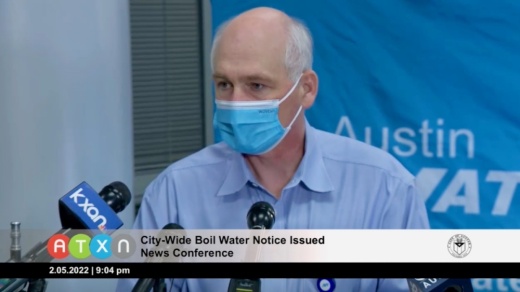"While I have loved my job as director, and I am exceedingly proud of all that my team and I have accomplished over the nearly 15 years I have served as Austin Water’s leader, I am ready to step aside," Meszaros said in his resignation letter to City Manager Spencer Cronk.
While internal reviews into the dayslong issues are underway, Meszaros' exit comes before any official inquiries into Austin Water's operations have begun. City Council is expected to meet for a special-called hearing on the incident Feb. 15, and a majority of council is backing an external audit of the utility that will be called for Feb. 17. Council's Austin Water Oversight Committee is also set to meet Feb. 23 for a regular meeting including a discussion of the boil notice that lifted Feb. 8.
In his resignation note, Meszaros said he will remain available during Austin Water's transition of leadership.
"I have embraced the job, and I believe I have demonstrated strong leadership and an exemplary work ethic. The job does take a toll, though, and part of being a courageous leader is knowing when it is time to allow others with new energy and insight to come forward. I take full responsibility for any shortcomings at the utility this past week," he wrote.
Cronk said Austin owes Meszaros a "debt of gratitude" for his service and that he and Meszaros will coordinate the placement of a new interim director at Austin Water in the coming days.
Error updates
In a separate Feb. 11 memo released alongside his exit notice, Meszaros outlined several additional details about the Feb. 5-8 boil-water experience and employee mistakes in response to questions from council members.
"Residents are angry, frustrated, and have lost trust in us. I share your frustration and am deeply disappointed that this event occurred. Knowing how it has affected this community and our organization weighs heavily on me," he wrote.
The boil-water notice was prompted early Feb. 5 by increased turbidity—the measurement of water clarity that can point to levels of potentially harmful particles—at the Ullrich Water Treatment Plant early in the morning. Austin Water has since said that no contaminants were ever found during the event, but state regulations require boil notices in response to turbidity spikes. Such notices can only be lifted after a dayslong quality review by the Texas Commission on Environmental Quality, which was completed around 10 p.m. Feb. 8.
While Austin Water had not previously shared information on the cause of the turbidity issue, Meszaros said Feb. 11 that an operator error at Ullrich led to the extensive addition of processed solids during water treatment. The issue stretched back to Feb. 4, when operators working on a standard process resulting in temporary turbidity increases failed to end that process.
"The 'seeding'—adding the high turbidity mixture—should have stopped after a couple of hours. Instead, it continued for most of the night. This resulted in high turbidity water that contained higher than normal levels of calcium oxide moving into the water filters – the next step in the process," Meszaros said. "At first the filters were able to remove the particles and produce water that met regulatory standards. Ultimately the finished water that enters the distribution system began exceeding regulatory standards for turbidity early on Saturday morning around 8 a.m."
Meszaros said three employees are now on administrative leave in relation to the error, pending an investigation. City municipal civil service rules prevent any employee discipline before a “properly documented inquiry” is completed. And with council set to dive into the utility's operations next week, Meszaros said Austin Water is also working on its own investigation.
"A full review of this event has begun to determine the events leading up to the operational error at the Ullrich Treatment Plant and to identify corrective actions needed to prevent this from occurring again," he said.
Meszaros' last memo and question-and-answer responses to City Council may be viewed here.





